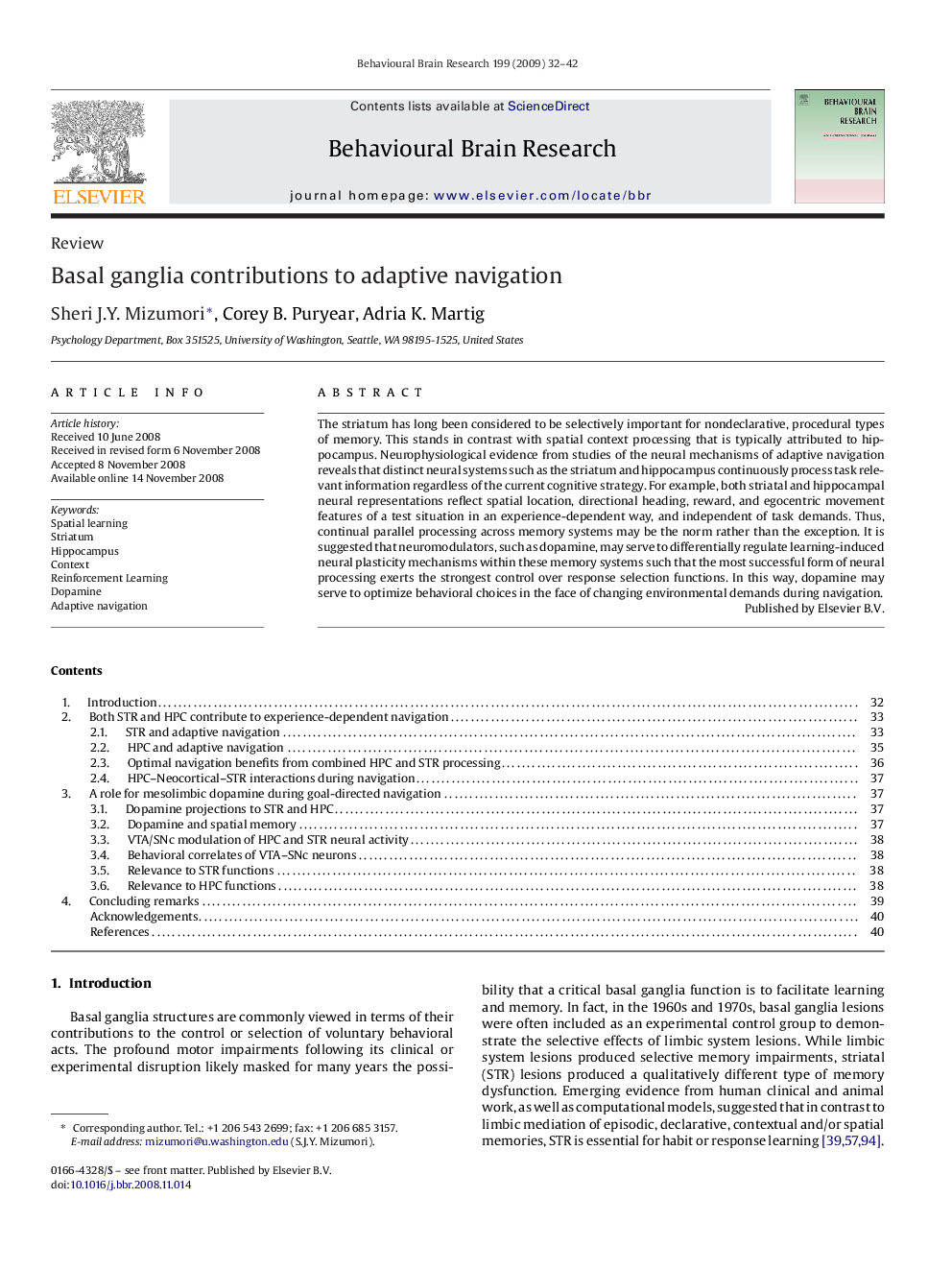| Article ID | Journal | Published Year | Pages | File Type |
|---|---|---|---|---|
| 4314842 | Behavioural Brain Research | 2009 | 11 Pages |
The striatum has long been considered to be selectively important for nondeclarative, procedural types of memory. This stands in contrast with spatial context processing that is typically attributed to hippocampus. Neurophysiological evidence from studies of the neural mechanisms of adaptive navigation reveals that distinct neural systems such as the striatum and hippocampus continuously process task relevant information regardless of the current cognitive strategy. For example, both striatal and hippocampal neural representations reflect spatial location, directional heading, reward, and egocentric movement features of a test situation in an experience-dependent way, and independent of task demands. Thus, continual parallel processing across memory systems may be the norm rather than the exception. It is suggested that neuromodulators, such as dopamine, may serve to differentially regulate learning-induced neural plasticity mechanisms within these memory systems such that the most successful form of neural processing exerts the strongest control over response selection functions. In this way, dopamine may serve to optimize behavioral choices in the face of changing environmental demands during navigation.
